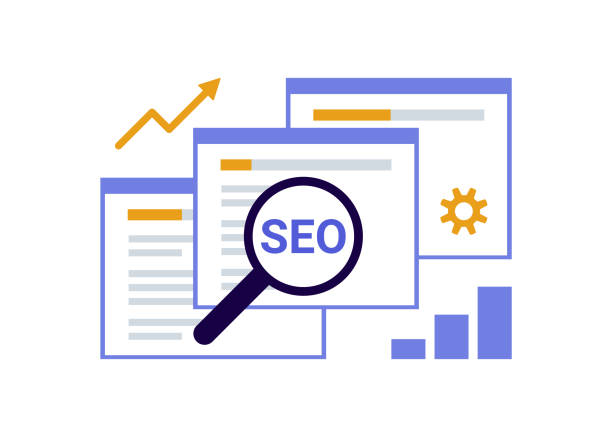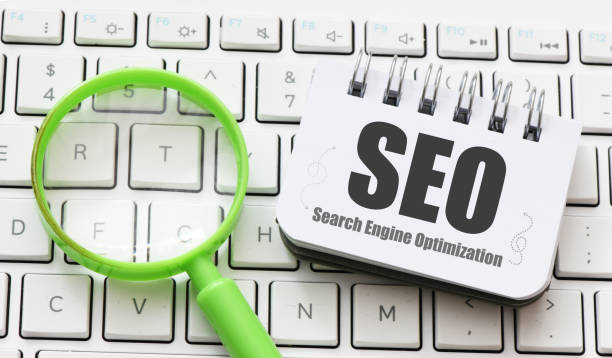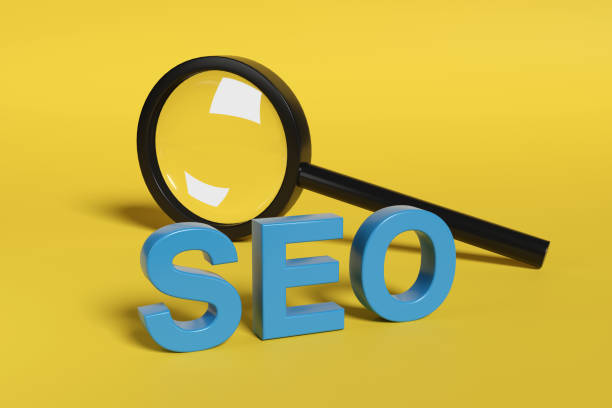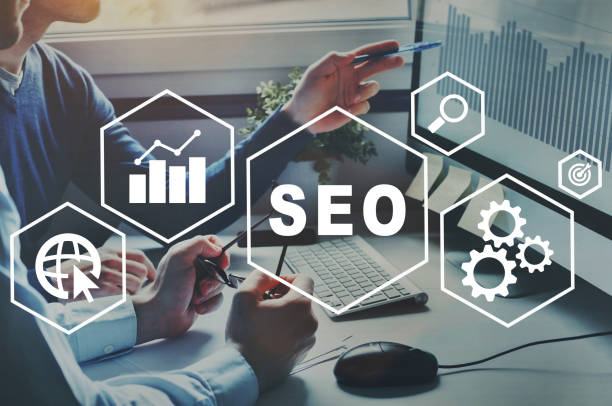What is SEO and Why is it Important?

What is SEO and Why is it Important?
#SEO, or Search Engine Optimization, is the process of improving the visibility of a website or a web page in the organic search results of search engines such as Google, Bing, and Yahoo.
SEO includes techniques and strategies that help websites rank higher in search results.
The main goal of SEO is to increase organic (non-paid) traffic to the website.
The importance of SEO stems from the fact that most internet users use search engines to find the information, products, or services they need.
Websites that appear on the first pages of search results have a greater chance of attracting visitors and potential customers.
SEO helps businesses to be seen, introduce their brand, and ultimately increase their sales.
In addition, SEO also helps improve the user experience of the website.
By optimizing the structure, content, and speed of the website, users can more easily find the information they need and enjoy your website.
This leads to increased conversion rates and customer loyalty.
In short, SEO is a valuable investment for any business that wants to succeed in the online world.
By implementing appropriate SEO strategies, you can improve your website’s ranking in search results, attract more traffic, and ultimately achieve your business goals.
Does your current site display your brand’s credibility as it should? Or does it scare away potential customers?
Rasweb, with years of experience in designing professional corporate websites, is your comprehensive solution.
✅ A modern, beautiful site tailored to your brand identity
✅ Significant increase in lead generation and new customers
⚡ Contact Rasweb now for a free corporate website design consultation!
Fundamentals of Keywords in SEO

Fundamentals of Keywords in SEO
Keywords play a vital role in SEO.
Keywords are phrases that users use to search for information, products, or services in search engines.
Choosing the right keywords and using them correctly in website content helps search engines understand the topic of your website and display it in relevant search results.
The keyword selection process includes the following:
- Keyword Research First, you need to identify keywords related to your business and audience.
You can use tools like Ahrefs Keywords Explorer, Keyword Tool, Ubersuggest, and Google Trends to find popular and relevant keywords. - Competitor Analysis Check what keywords your competitors are using.
This helps you identify new opportunities and improve your keyword strategy. - Selecting Target Keywords Choose words that are relevant to your website’s content, have a good search volume, and have low competition.
After selecting the appropriate keywords, you should use them strategically in your website content.
Place keywords in page titles, main text, meta descriptions, image alt tags, and page URLs.
But be careful not to overuse keywords, as this may result in your website being penalized by search engines.
Finally, remember that SEO is an ongoing process.
You should regularly review and update your keywords, follow changes to search engine algorithms, and adjust your SEO strategy accordingly.
On-Page SEO – Optimizing Content and Site Structure

On-Page SEO – Optimizing Content and Site Structure
On-Page SEO refers to the set of actions you take within your website to improve your website’s ranking in search results.
These actions include optimizing content, website structure, HTML tags, and other internal elements of the website.
The most important factors of On-Page SEO include:
- Quality Content Your website content should be valuable, engaging, and relevant to your audience’s needs.
Content should be updated regularly and include appropriate keywords. - Title and Meta Descriptions The title and meta descriptions display a summary of the page’s content in search results.
These elements should be attractive and persuasive to encourage users to click on your website. - URL Structure The URLs of your website pages should be short, clear, and contain relevant keywords.
- Heading Tags (H1-H6) Use heading tags to organize your website content.
The H1 tag should be the main title of the page, and the other tags should specify subheadings. - Optimized Images Your website images should be saved in the appropriate format, have a small size, and have alt tags with relevant descriptions.
- Page Load Speed Page load speed is an important factor in website ranking.
Make sure your website loads quickly to provide a good user experience for visitors.
By implementing these techniques, you can improve your website’s On-Page SEO and increase your website’s ranking in search results.
| On-Page SEO Factor | Description | Importance |
|---|---|---|
| Quality Content | Providing valuable and relevant information for users | Very High |
| Title and Meta Descriptions | Attracting users through search results | High |
| URL Structure | Page addresses should be clear and relevant | Medium |
| Heading Tags | Organizing content and improving readability | High |
| Optimized Images | Reducing image size and adding alternative text | Medium |
Off-Page SEO – Link Building and Domain Authority

Off-Page SEO – Link Building and Domain Authority
Off-Page SEO refers to the set of activities you do outside your website to improve the credibility and ranking of your website in search results.
The most important factor in Off-Page SEO is Link Building.
Link building is the process of getting links from other websites to your website.
Links show search engines that your website is credible and valuable and deserves a higher ranking.
Links should be from reputable websites that are relevant to the topic of your website.
There are different types of links, including:
- Natural Links Links that are naturally given to your website by other websites.
- Manual Links Links that you manually get from other websites.
- Self-Made Links Links that you create in social media profiles, forums, and other websites.
In addition to link building, other factors also play a role in Off-Page SEO, including:
- Domain Authority Domain Authority represents the power and credibility of your website.
Domain Authority is calculated by Moz and varies between 0 and 100. - Page Authority Page Authority represents the power and credibility of a specific page on your website.
Page Authority is also calculated by Moz and varies between 0 and 100. - Social Media Activity on social media can help increase your brand’s credibility and drive traffic to your website.
By focusing on Off-Page SEO, you can improve your website’s credibility and ranking in search results and attract more traffic.
Are you worried about the low conversion rate of your online store and not having the desired sales?
Rasweb is your specialized solution for having a successful online store.
✅ Significant increase in conversion rate and sales
✅ Professional and user-friendly design to satisfy customers
⚡ Ready to transform your online sales? Get a free consultation!
Technical SEO – Optimizing the Technical Aspects of the Website

Technical SEO – Optimizing the Technical Aspects of the Website
Technical SEO refers to the set of actions you take to optimize the technical aspects of your website so that search engines can easily review, index, and rank your website.
Technical SEO includes the following:
- Website Speed Website speed is an important factor in ranking.
Faster websites provide a better user experience and have a better chance of attracting visitors. - Mobile Compatibility Today, more than half of internet traffic comes from mobile devices.
Therefore, your website must be fully compatible with mobile devices. - XML Sitemap An XML Sitemap is a file that helps search engines understand the structure of your website and find all the pages of your website.
- robots.txt File The robots.txt file is a file that tells search engines which pages of your website should not be reviewed.
- HTTPS Using HTTPS (Hypertext Transfer Protocol Secure) to secure communication between your website and visitors is essential.
- Structured Data Structured Data is information that helps search engines better understand the content of your website.
By optimizing the technical aspects of your website, you can help search engines better understand your website and improve your website’s ranking in search results.
User Experience (UX) and Its Impact on SEO

User Experience (UX) and Its Impact on SEO
User Experience (UX) refers to the feeling and experience that users have when visiting your website.
A good user experience can lead to increased user engagement, reduced bounce rate, and increased conversion rate.
SEO and user experience are two sides of the same coin, and both are essential for your website’s success.
Search engines like Google place great importance on user experience.
Google uses various signals to evaluate user experience, including:
- Bounce Rate Bounce rate shows what percentage of your website visitors leave your website after visiting one page without visiting other pages.
- Time on Page Time on page shows how long users spend on your website pages.
- Number of Pages Visited per Visit This metric shows how many pages of your website users visit per visit.
- Conversion Rate Conversion rate shows what percentage of your website visitors take a specific action, such as buying a product or signing up for a newsletter.
To improve the user experience of your website, you can take the following actions:
- User-Friendly Website Design Your website design should be simple, attractive, and easy to use.
- Easy Navigation Users should be able to easily navigate your website and find the information they need.
- Quality Content Your website content should be valuable, engaging, and relevant to your audience’s needs.
- Website Speed Your website should load quickly to provide a good user experience for visitors.
- Mobile Compatibility Your website must be fully compatible with mobile devices.
By improving the user experience of your website, you can improve your website’s ranking in search results and attract more traffic.
Useful SEO Tools

Useful SEO Tools
There are various SEO tools available to help you improve your SEO strategy.
Some useful SEO tools include:
- Google Analytics Google Analytics is a free tool that helps you analyze your website traffic.
Using Google Analytics, you can gain information about the number of visitors, traffic sources, user behavior, and conversion rate. - Google Search Console Google Search Console is a free tool that helps you monitor your website’s performance in Google search results.
Using Google Search Console, you can identify technical problems with your website, register your sitemap, and submit requests to review new pages. - Ahrefs Ahrefs is a paid tool that provides various features for SEO, including keyword research, competitor analysis, backlink checking, and rank monitoring.
- SEMrush SEMrush is another paid tool that provides similar features to Ahrefs.
- Moz Pro Moz Pro is a paid tool that provides features for keyword research, competitor analysis, backlink checking, and rank monitoring.
By using these tools, you can measure your website’s SEO performance, identify new opportunities, and improve your SEO strategy.
Local SEO – Attracting Customers in Your Area

Local SEO – Attracting Customers in Your Area
Local SEO refers to the set of actions you take to improve your website’s ranking in local search results.
Local SEO is very important for businesses that are looking to attract customers in their area.
The most important factors in Local SEO include:
- Google My Business Registering with Google My Business and completing your business information accurately and correctly.
- Name, Address, and Phone Number (NAP) Citation Make sure that your business’s name, address, and phone number are consistent on all pages of your website and on other websites related to your business.
- Customer Reviews Encourage customers to submit reviews on Google My Business and other business review websites.
- Local Keywords Using local keywords in your website content, such as the name of the city or area.
- Local Link Building Getting links from local websites related to your business.
| Local SEO Actions | Description | Benefits |
|---|---|---|
| Register on Google My Business | Creating and optimizing a business profile on Google | Display in local search results and Google Maps |
| Consistent NAP Citation | Ensuring the business information is consistent across all platforms | Increasing the trust of search engines and customers |
| Collecting Customer Reviews | Encouraging customers to post positive reviews | Increasing credibility and attracting new customers |
| Local Keyword Optimization | Using keywords related to the geographical area | Improving ranking in local search results |
| Local Link Building | Getting links from reputable local websites | Increasing credibility and ranking in local search results |
By implementing these techniques, you can improve your website’s Local SEO and attract more customers in your area.
Did you know that 85% of customers check your company’s website before any interaction?
With Rasweb, build a corporate website that deserves your reputation.
✅ Increase customer credibility and trust
✅ Attract high-quality leads
⚡ Get a free website design consultation
Analyzing and Monitoring SEO Results

Analyzing and Monitoring SEO Results
SEO is an ongoing process, and to succeed, you must regularly analyze and monitor your SEO results.
Analyzing and monitoring SEO results helps you understand what actions are effective and what actions need improvement.
The most important Key Performance Indicators (KPIs) to monitor in SEO include:
- Organic Traffic Organic traffic shows how many visitors have entered your website through organic search results.
- Keyword Ranking Keyword ranking shows what position your website ranks in search results for your target keywords.
- Bounce Rate Bounce rate shows what percentage of your website visitors leave your website after visiting one page without visiting other pages.
- Time on Page Time on page shows how long users spend on your website pages.
- Conversion Rate Conversion rate shows what percentage of your website visitors take a specific action, such as buying a product or signing up for a newsletter.
You can use tools like Google Analytics and Google Search Console to monitor these indicators and evaluate your SEO performance.
The Future of SEO and New Trends

The Future of SEO and New Trends
SEO is constantly changing and evolving.
Search engine algorithms are constantly updated, and new trends emerge in SEO.
To succeed in SEO, you must always be aware of the latest changes and new trends.
Some important trends in SEO include:
- Artificial Intelligence (AI) Artificial intelligence plays an increasing role in SEO.
Search engines use artificial intelligence to better understand website content and provide more relevant search results to users. - Voice Search With the increasing use of voice assistants like Google Assistant and Siri, optimizing for voice search has become more important.
- Video Content Video content has become increasingly popular, and search engines place great importance on videos.
- Mobile Optimization With the increasing use of mobile devices, optimizing your website for mobile has become more important than ever.
- E-A-T (Expertise, Authoritativeness, Trustworthiness) Google places great importance on the expertise, authoritativeness, and trustworthiness of websites.
Considering these trends, you should adjust your SEO strategy to be compatible with new changes.
Frequently Asked Questions
| Question | Answer |
|---|---|
| What is SEO? | SEO, or Search Engine Optimization, is a process to increase the quality and quantity of website traffic by improving the site’s ranking in the natural (organic) results of search engines like Google. |
| What are the main types of SEO? | SEO is divided into three main categories: On-Page SEO, Off-Page SEO, and Technical SEO. |
| What does On-Page SEO include? | On-Page SEO includes optimizing elements within the website, such as keywords, page title (Title Tag), meta description (Meta Description), content, URL structure, images, and internal links. |
| What is Off-Page SEO? | Off-Page SEO refers to activities outside the website that help improve its ranking, such as backlink building (Backlink Building), social media marketing, and brand mentions (Brand Mentions). |
| What is Technical SEO? | Technical SEO deals with optimizing the technical aspects of the website to help search engines crawl and index it better. This includes site speed, mobile-friendliness, site structure, sitemaps (Sitemap), and the Robots.txt file. |
| What role do Keywords play in SEO? | Keywords are phrases that users enter into search engines. Using relevant keywords correctly and purposefully in the content and elements of the site helps search engines understand the topic of your page and display it to related searches. |
| What is a Backlink and why is it important? | A backlink, or inbound link, is a link from one website to another. Backlinks act as a “vote of confidence” from other sites for search engines and play an important role in the site’s credibility and ranking, especially if they are from reputable sites. |
| What impact does quality content have on SEO? | Quality content that is relevant, comprehensive, and unique not only attracts and retains users but also shows search engines that your page is valuable. This helps improve ranking, reduce bounce rate, and increase the time users spend on the site. |
| Why is site loading speed important for SEO? | Site loading speed is an important ranking factor for Google. Faster sites provide a better user experience, have lower bounce rates, and are preferred by search engines. |
| Is SEO a one-time process? | No, SEO is a continuous and long-term process. Search engine algorithms are constantly changing, competition is increasing, and site content also needs to be updated. Therefore, SEO requires continuous monitoring, analysis, and optimization. |
And other services of Rasa Web advertising agency in the field of advertising
Smart Digital Branding: A professional solution for analyzing customer behavior with a focus on SEO-driven content strategy.
Smart Reporting: Professional optimization for analyzing customer behavior using marketing automation.
Smart Sales Automation: An effective tool to increase sales by customizing the user experience.
Smart Direct Marketing: Designed for businesses looking to improve their SEO ranking through custom programming.
Smart Digital Advertising: Professional optimization for user engagement using attractive user interface design.
And more than hundreds of other services in the field of internet advertising, advertising consulting and organizational solutions
Internet Advertising | Advertising Strategy | Advertising Report
Resources
What is SEO?
,Inbound Marketing
,Beginner’s Guide to SEO
,Ahrefs SEO Blog
? Are you ready to take your business to the peak in the digital world? Rasa Web Digital Marketing Agency, with expertise in professional website design, SEO optimization, and comprehensive content marketing strategies, is your guide to achieving big goals. With us, you will have a powerful and lasting presence in the online space.
📍 Tehran, Mirdamad Street, next to the Central Bank, South Kazerun Alley, Ramin Alley No. 6




